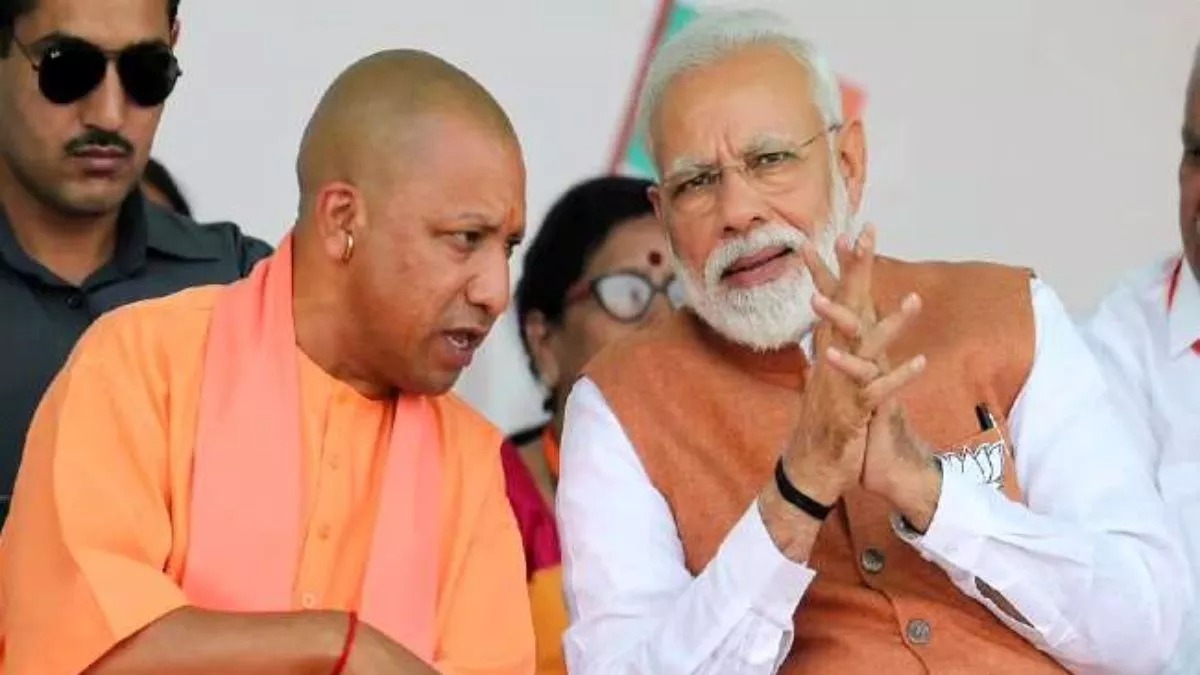
Gorakhpur. BJP, alerted by the opposition's massive dent in the Dalit and backward vote bank in Purvanchal, has started working to save it. By giving place in the Union Cabinet to Kurmi leader Pankaj Chaudhary, who has been elected MP for the seventh time from Maharajganj, and Kamlesh Paswan, who has reached the Lok Sabha for the fourth consecutive time from Bansgaon, the party has indicated its strengthening its hold in the backward and Dalit communities.
This step of the central leadership is being seen as a strategy to placate the angry voters and to bring back the Dalit-backward votes that have slipped away to the party. Assistant Professor in the Political Science Department of Gorakhpur University and political analyst Mahendra Singh says that the opposition's storm in Gorakhshprat was weak in comparison to the huge loss of seats in Awadh and Kashi region during the Lok Sabha elections.
By winning five out of six seats in Gorakhpur division, BJP has proved that no matter whose wind blows in the country and state politics, Gorakshapeeth will have its influence around Gorakhpur.
The two MPs from Gorakhpur division getting a place in the ministry is being considered a reward for that influence. Mahendra Singh believes that the reason behind making Pankaj Chaudhary and Kamlesh Paswan ministers is to increase the representation of those castes which need to be brought forward.
If we look at the political equation, the BSP came to power only due to the polarization of OBC and Pasi votes. After this, when this vote bank came to BJP, BJP came to power. In the 2024 Lok Sabha elections, the votes of these communities have shifted to SP-Congress, it can be believed that the party has taken this step to save it.
The decision to include two MPs from Gorakhpur in the cabinet is also being linked to the preparations for the Uttar Pradesh assembly elections to be held in 2027 after two and a half years. The way backward, extremely backward and Dalit votes shifted from the BJP during the Lok Sabha elections to the SP and Congress candidates in the Indy alliance, the challenge of bringing them back will be on the shoulders of both the ministers.
If we look at the review of the assembly and booth-wise results of the Lok Sabha elections, the BJP, which was undefeated for 10 years on the nine seats of Gorakhpur-Basti division, could not save the Basti, Sant Kabir Nagar and Salempur seats this time.
SP fielded backward class candidates on these three seats and snatched the seats from BJP. BJP too had fielded backward class candidates on two seats, but due to lack of coordination with the organisation, they had to face defeat.
BJP may have won Gorakhpur, Deoria, Kushinagar, Maharajganj and Bansgaon (SC) seats, but BJP candidates had to struggle due to large scale shift of backward and Dalit votes to SP and Congress. In Maharajganj seat, BJP's victory margin in the last election was three and a half lakh votes, but this time it came down to 36 thousand due to the dent in backward votes.
The same situation prevailed in Bansgaon and Deoria. Due to OBC and Dalit votes going to Congress, the margin of victory of BJP which had won by 1.5 lakh and 2.5 lakh votes respectively, came down to 5 thousand and 35 thousand.
--Advertisement--

 Priya
Priya Share
Share



